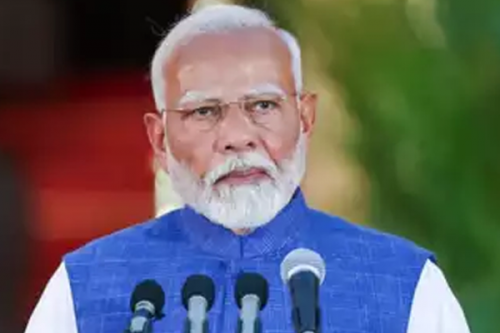PM to release 109 high-yielding, climate-resilient varieties of seeds

New Delhi, Aug 10 (IANS) Prime Minister Narendra Modi will release seeds of 109 high-yielding, climate-resilient and biofortified varieties of crops on Sunday at the India Agricultural Research Institute in the national Capital where he will also interact with farmers and scientists.
According to a PMO statement issued on Saturday, seeds for these 109 varieties will be for 61 crops which will include 34 field crops and 27 horticultural ones.
Among the field crops, seeds of various cereals including millets, forage crops, oilseeds, pulses, sugarcane, cotton, fibre and other potential crops will be released.
Among the horticultural crops, seeds of different varieties of fruits, vegetables, plantation crops, tuber crops, spices, flowers and medicinal crops will be released, the PMO said.
The Prime Minister has always encouraged sustainable farming and adoption of climate-resilient methodologies.
He has also emphasised on promoting the biofortified varieties of crops by linking them with several government programmes like Mid-Day Meal, Anganwadi, etc., to make India free of malnutrition.
The Prime Minister has stressed that these steps will ensure good income for the farmers along with opening new avenues of entrepreneurship for them, the official statement added.
PM Modi on Saturday said that India has emerged as a food surplus country with a robust agriculture sector and was ready to share its experience to help solve the global problem of hunger and malnutrition amid the challenge posed by climate change.
Last week, PM Modi had said at the 75-nation 32nd International Conference of Agricultural Economists (ICAE) in New Delhi that India has developed as many as 1,900 new climate-resilient varieties of seeds for various crops to benefit the country’s farmers which included a rice variety that requires 25 per cent less water.
He further stated India had also developed a basket of “super foods” such as black rice and millets that it was ready to share with the world, especially to benefit the Global South.
He explained that the black rice being grown in the North-east states such as Manipur and Assam has medicinal value and could fetch good returns to benefit farmers.
Similarly, India has emerged as the largest producer of millets which is considered a super food and is being grown on the “minimum water and maximum production” principle which will help to solve the problem of global malnutrition.
The potential of millets was highlighted with the UN celebrating 2023 as the ‘Year of the Millet’, he pointed out.

|

|

